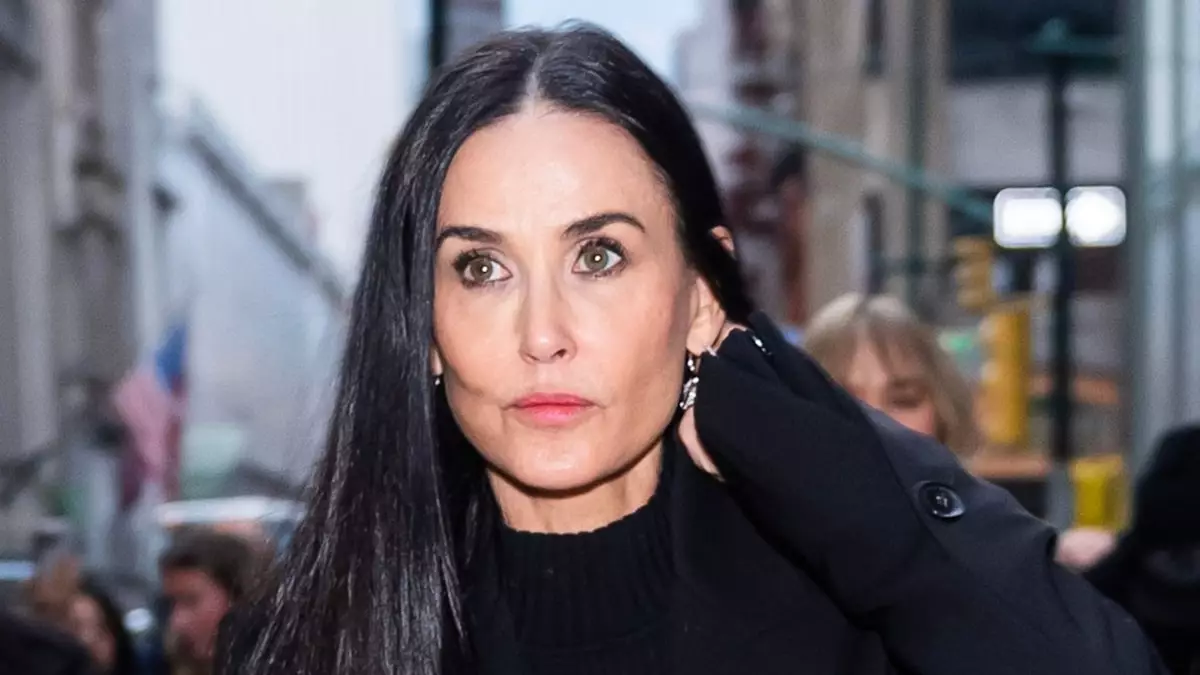In the realm of Hollywood, few names resonate as powerfully as Bruce Willis. With a career spanning decades and a treasure trove of iconic films, his departure from the spotlight has left an unmistakable mark. Three years ago, news broke that the celebrated actor had been diagnosed with aphasia, a communication disorder often stemming from brain injury, which later evolved into a more severe diagnosis of frontotemporal dementia (FTD). This shift in his health status has not only affected his professional life but also posed profound challenges for his family.
Demi Moore, Bruce’s ex-wife and a fellow Hollywood star, recently provided an optimistic update during her conversation with Christiane Amanpour on CNN. She noted that despite the challenges, “given the givens, he’s in a very stable place at the moment.” Moore’s candor reflects an emotional depth and maturity that flows from their shared history and collective experiences as co-parents to their three daughters. Her words resonate with hope amidst a backdrop of adversity, emphasizing the importance of engaging with individuals facing such cognitive disorders with compassion and understanding.
Moore poignantly expressed the duality of grief and beauty that one can encounter in such dire situations: “There is great loss, but there is also great beauty and gifts that can come out of it.” This statement underscores a universal truth—pain and joy often coexist, enriching the human experience in unexpected ways. For families navigating the treacherous waters of dementia, finding moments of connection and love can serve as powerful reminders of resilience.
The Family’s Collective Response to FTD
Bruce’s situation has sparked an evolution within his family dynamic, bringing them closer together. His five daughters—Rumer, Scout, Tallulah, and the younger pair Mabel and Evelyn—have rallied around their father, creating a support network steeped in love and understanding. Scout, for instance, publicly shared heartwarming images of tender moments she shares with Bruce, emphasizing the essence of familial bonds amidst health crises.
Emma Heming, Bruce’s current wife, has been particularly vocal about the emotional and practical challenges posed by the illness. She described FTD as “misdiagnosed, missed, and misunderstood,” highlighting the uncertainty that can surround dementia diagnoses. Her commitment to transparency with their children is notably refreshing; she believes that when children ask questions, they are ready to comprehend the answers. This approach not only fosters an environment where the children can express their feelings but also helps them process the gradual decline they witness in their father.
Frontotemporal dementia represents a challenging health crisis not only for the individual but also for their loved ones. As the most common form of dementia for those under 60, FTD poses unique hurdles, especially given its progressive and terminal nature. Current medical research has yet to unveil effective treatments for this condition, leaving families navigating a landscape of uncertainty and managing symptoms as they arise.
The announcement of Bruce’s retirement from acting in 2022 came alongside the acknowledgment of how FTD was impacting his cognitive abilities. This transition underscores the reality many face: the need to prioritize health and well-being over professional commitments. Bruce’s family’s courage in openly discussing the implications of his condition is commendable, and it shines a light on broader societal issues surrounding dementia awareness.
The journey that Bruce Willis and his family are navigating together is both heart-wrenching and inspiring. As updates on his condition emerge, the responses from Demi Moore, Emma Heming, and his daughters reveal a tapestry of support, love, and resilience. While the road ahead may remain fraught with challenges, the way this family chooses to address their realities and cultivate joy amidst hardship stands as a testament to the power of love and connection. In sharing their experiences, they not only honor Bruce’s legacy but also offer hope and insights for countless others raising similar battles against dementia.

